Efficiency can improve your Environmental Footprint

Our industry is not well thought of in the environmental world. I heard of a dry cleaner who said he was ‘Environmentally Friendly’. When questioned, he said that that means he picks up the papers in the parking lot.
The term is hard to define, but there is more to it than just handling solvent and waste safely.
Rather than talking about being environmentally friendly, why don’t we talk about things that just make good business sense? Here are some things to make your business run in a more efficient and profitable manner.
Wasted Water
Water leaks are one of the least urgent repairs in a plant: return tanks overflowing, washers leaking down the drain, dry cleaning machines that are not adjusted properly. All of these waste water. Not only do you pay for that water, you are probably paying a sewage charge as well.
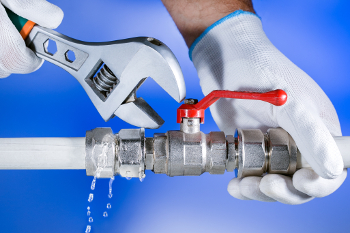
What is the response of some dry cleaners? It doesn’t matter, I don’t pay for water. Actually, you do. It is included in the common area fees. But even if you don’t pay for water, those leaks are causing you other problems.
An overflowing return tank not only wastes water, it also adds more fresh water to the boiler – adding more oxygen and scale. Plus it uses more salt in the water softener and it dilutes/wastes your boiler treatment. Those can be serious and expensive problems.
Washers can leak water through the drain valve or the inlet valve. If the drain valve leaks, you will not get a good wash. If the inlet valve leaks, you are diluting your detergent and reducing the mechanical action when the washer over-fills.
If the water modulating valves are not adjusted properly on your dry cleaning machine, drying or distillation may not function at peak capacity.
If you have a water leak – get it fixed.
Wasted Steam, Air and Natural Gas
Virtually every plant has air leaks. As equipment ages, fittings start to leak. That only becomes a problem when there are too many leaks, or they get worse. It would be expensive to try replacing every leaking push-to-connect fitting in a plant. It is not difficult, though, to repair the bad ones. If you don’t fix the leaks, your compressor runs longer (costing more money) and the air leak may affect the operation of other machines.
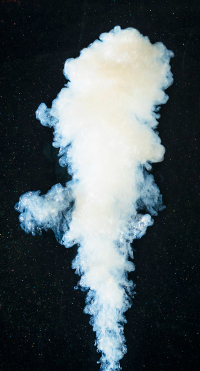
Steam leaks are more critical. Once a pipe or fitting starts to leak steam, it will not get better on its own – and someone could be hurt. The boiler runs longer, dripping water may cause damage, and your staff work slower because they are trying to be extra careful.
Are your dryers operated properly? Use moisture-controlled cycles whenever possible. Don’t just crank the timer to one hour for every load. You waste energy when you over-dry the loads, and it may cause your towels to turn grey.
Are you turning your boiler on too early or shutting it off too late? With practise, you can judge exactly when to turn the steam off before the pressers are finished. The steam pressure generally lasts 15 minutes. Why not use that steam to your benefit, rather than waste it because everyone is done working for the day?
Pipe insulation saves energy. It reduces the cost to generate steam and it reduces the cost to cool the plant. Plus, if I don’t burn myself, your repair costs might be lower!
Your operators need to know the correct way to operate each machine. Run full loads. Let the cycle finish completely. Follow the manufacturer’s instructions. Often one operator trains the next – including all their bad habits. Every time a new operator is trained, the bad habits get worse.
Chemical Usage
If you think, ‘If 4 ozs. of soap is good, then 8 ozs. must be even better,’ you’re wrong. Are your people using the correct amount of detergent/boiler treatment/whatever? Each manufacturer has specific recommendations. Using too much does not improve the results. It just increases your costs and may reduce quality.
Are all your chemicals/solvents/waste stored safely? Spills could cause environmental concerns. Spilled or damaged product costs you more money.
More Efficient Equipment
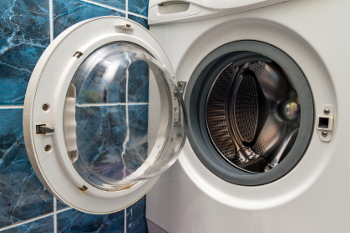
If you really want to save some money, look at new equipment. New solvents perform better and reduce the amount of waste. Machines are more efficient in terms of utility usage. Washers extract more water. Dryers control the temperature better and turn off sooner. Some presses are designed to use less steam. All those things are good for the environment and good for the bottom line.
Some plants have changed to LED light fixtures and received government money to help with the cost. Check to see if your province has a program like that.
Recycling
Most plants recycle hangers. It is easy to see the savings compared to the cost of buying new hangers. Are you recycling your poly? That is relatively easy to do and the waste you send for recycling is clean and easy to recycle. You just have to find somewhere to take the poly and make the decision to do it.
The same goes for paper and cardboard. They are valuable for recycling and it is just as easy to throw the paper into a recycle bin as it is to throw it into the garbage.
Do as I say and as I do
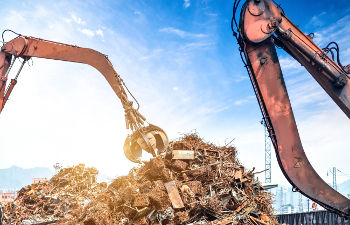
I have been picking on you so you are probably asking what my business is like. Do I walk the talk? We try to be responsible in a reasonable way.
We have bins for recycling cardboard/paper/plastic. It doesn’t take much effort and we dump the bins every couple of weeks. When we are doing a job we often look for the customer’s recycle bin. Usually they don’t have one and we end up hauling the recycling back to our office.
We also recycle scrap metal. On a good day, your old dry cleaning machine might be worth $200. But it costs me $125 for the picker truck to haul it to the scrapyard. Sometimes we will haul a pick-up load to the scrapyard. It is probably worth $90 but it takes two guys an hour to make the trip. No, we are not making money, but it is the right thing to do.
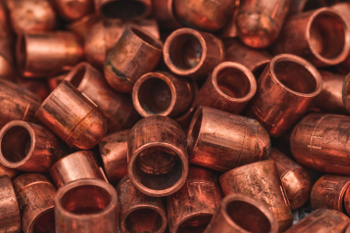
Copper and brass are worth a lot more – if it is clean and sorted. Take the steel handles off the valves and separate the brass from the copper. It takes some time to do that, but we do make some money that way.
Wood pallets go to a recycling plant. They are made into wood chips for mulch and animal bedding. Their charges are less than the city dump, so it make sense to recycle them.
We even recycle old dry cleaners and turn them into salespersons and technicians. (Ian Grant, our salesman, is 74 and has worked in plants for over 40 years). Those years of experience in cleaning and running a business are an invaluable resource.
Implementation
Operating your plant in a responsible manner goes way beyond handling solvent properly, but much of it makes good business sense. Think about the implications of your choices and make the right choice. Someone in your organization needs to provide leadership and guidance. If you do that, your people will gladly follow.
Kevin Marois founded Calgary based Integrity Mechanical in 2003 to service plants in western Canada. He writes on issues related to equipment, its purchase, maintenance and use. You can reach Kevin at office@imicanada.ca or via his website www.imicanada.ca






